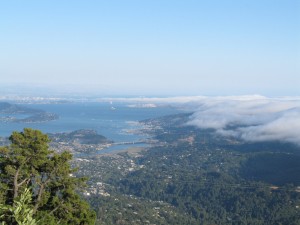
Let's start out with the disclaimers -- first, this small study -- just 338 samples -- has to be proven in a larger study. Second, even if true, we are years away from seeing new treatments.
Still this new research from UCSF is intriguing to say the least. Researchers at UC San Francisco looked at cell samples from women shown through previous testing to be at higher risk of breast cancer. They found that those women were almost twice as likely to have a genetic variation involving a vitamin D receptor. The research was published online earlier this week and will be in the November print edition of the Journal of the American College of Surgeons.
Marin County has one of the highest rates of breast cancer in the world. A 2003 study found that the land in Marin was not a factor -- a woman's risk of developing cancer did not go up if she lived longer in Marin County. In conducting that study, researchers had used cell samples taken from the mouths of women -- half the women had breast cancer, half did not. Those samples were kept frozen after the study was complete.
This new study used technology developed by InterGenetics in Oklahoma City. The new technology scores breast cancer risk based on genetic variations within the vitamin D receptor and other genes, according to a press release from UCSF.
As the San Francisco Chronicle reports:
"A lot of people have been doing analyses of vitamin D levels and breast cancer risk, but there haven't been a lot of studies addressing the vitamin D receptor itself," said Dr. Kathie Dalessandri, a surgeon scientist in Point Reyes Station and primary author of the study.
"I think this is just the tip of the iceberg," she said, adding that the findings need to be validated in a larger study.
Yes, there's that "larger study needed" disclaimer mentioned above. From the UCSF release:
If genetic variations in the vitamin D receptor prove to be causally linked to breast cancer, that may help pave the way for new ways to prevent or treat the disease through vitamin D supplementation—though any such approaches would have to prove safe and effective in clinical trials, which can take years to reveal impact.
Studies of vitamin D supplementation to prevent breast cancer are going on now, Dr. Dalessandri says. Women whose alcohol consumption is more than two drinks each day are at increased risk for breast cancer. That alcohol can be associated with vitamin deficiency, which includes vitamin D deficiency. In Marin County, about 25 percent of the breast cases were in women who also had alcohol consumption above two drinks per day. Dr. Dalessandri believes the the vitamin D genetic variation is "potentially interacting" with the effects of the alcohol to increase breast cancer risk.